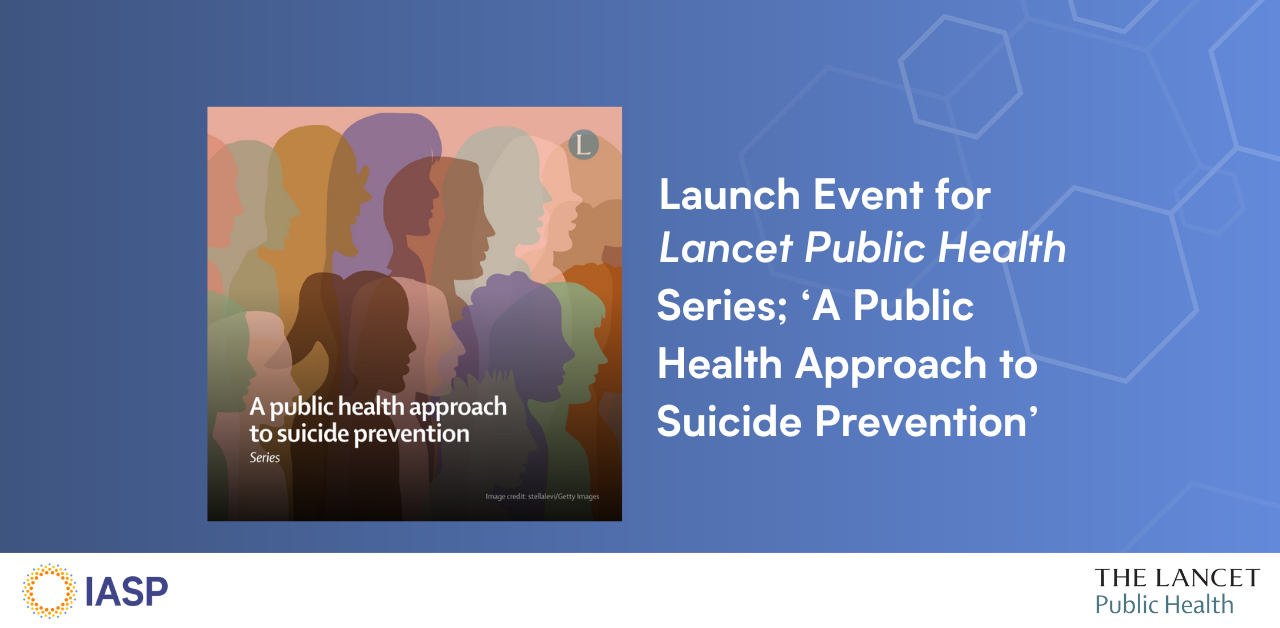On World Suicide Prevention Day, a special launch webinar was held to introduce a groundbreaking series aimed at reshaping how we understand and address suicide prevention globally. The launch of the Lancet Public Health Series on ‘A Public Health Approach to Suicide Prevention’ calls for a shift in the narrative, emphasizing the need to move beyond seeing suicide solely as a mental health issue and recognizing the significant role that social factors play in suicidal behaviour.
The series brings attention to the fact that while mental health challenges are often linked to suicide, the influence of social determinants such as poverty, debt, addictions, homelessness, abuse, discrimination, and social isolation cannot be overlooked. This is particularly pertinent given that over 75% of suicides occur in lower and middle-income countries.
Tackling these factors requires a broader policy approach and a whole-of-government commitment. The series advocates for a “suicide prevention in all policies” approach, urging governments to recognize the role of different sectors (welfare, housing, financial sectors) in suicide prevention. It also calls for cross-sectoral responsibility for suicide prevention, proposing that it should be overseen by specially appointed ministers, rather than just health ministers. Moreover, voices of those with lived experience of suicide should be central to policy-making.
The series outlines several practical interventions aimed at reducing the social pressures that can lead to suicide. Examples include:
- Economic policies such as minimum wage legislation and income protection schemes to reduce financial strain and poverty, which can trigger suicidal ideation.
- Regulation of commercial products, such as policies that limit alcohol consumption or increase regulation of social media platforms to reduce harmful content that can exacerbate mental distress.
- Legislative and cultural changes aimed at reducing domestic violence and abuse, recognizing the profound impact these issues have on individuals’ mental well-being and their risk for suicide.
- The need to improve data collection systems to monitor suicide mortality as part of the Sustainable Development Goals (SDGs) is also recommended. Goal 3.2 aims to reduce suicide rates by one-third, but poor civil registration systems in many countries hinder progress.
These suggested interventions illustrate how a broad, cross-sectoral approach is necessary to combat the root causes of suicide and to support individuals before they enter a state of crisis.
Calls to Action from Lead Authors
During the launch, Prof. Keith Hawton from the University of Oxford emphasized the need for a public health approach to suicide prevention, stating:
“Many suicides are preventable, and public health strategies generally have the biggest impacts on reducing population suicide rates. This series highlights key areas where public health policies are needed and examples of their effective implementation. We hope this will inspire those responsible for suicide prevention across the world to ensure that such approaches are applied in their countries and localities.”
Prof. Jane Pirkis from the University of Melbourne further expanded on the importance of addressing upstream factors:
“Suicide is often thought of as stemming from mental illness, but factors like financial hardship, social isolation, discrimination, and domestic violence and abuse wield a major influence. This series demonstrates that addressing these more upstream factors is likely to lead to sizeable reductions in suicide rates. We are calling on governments from around the world to take a ‘suicide prevention in all policies’ approach.”
A Call for Global Commitment
Tackling suicide requires more than just mental health interventions; it necessitates a policy reset that incorporates suicide prevention into the decisions made across all sectors. From economic policy to social protection, governments worldwide must recognize their role in shaping the conditions that either contribute to or mitigate the risk of suicide. The launch of this series provides a clear framework for how countries can adopt this broader, more integrated approach to save lives and prevent further suicides.




